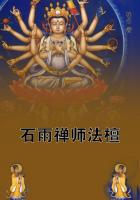On anxiety When I see a man anxious, I say, "What does this man want? If he did not want something which is not in his power, how could he be anxious?" For this reason a lute player when he is singing by himself has no anxiety, but when he enters the theatre, he is anxious even if he has a good voice and plays well on the lute; for he not only wishes to sing well, but also to obtain applause: but this is not in his power. Accordingly, where he has skill, there he has confidence. Bring any single person who knows nothing of music, and the musician does not care for him. But in the matter where a man knows nothing and has not been practiced, there he is anxious. What matter is this? He knows not what a crowd is or what the praise of a crowd is.
However he has learned to strike the lowest chord and the highest; but what the praise of the many is, and what power it has in life he neither knows nor has he thought about it. Hence he must of necessity tremble and grow pale. I cannot then say that a man is not a lute player when I see him afraid, but I can say something else, and not one thing, but many. And first of all I call him a stranger and say, "This man does not know in what part of the world he is, but though he has been here so long, he is ignorant of the laws of the State and the customs, and what is permitted and what is not; and he has never employed any lawyer to tell him and to explain the laws." But a man does not write a will, if he does not does not know how it ought to be written, or he employs a person who does know; nor does he rashly seal a bond or write a security. But he uses his desire without a lawyer's advice, and aversion, and pursuit, and attempt and purpose. "How do you mean without a lawyer?" He does not know that he wills what is not allowed, and does not will that which is of necessity; and he does not know either what is his own or what is or what is another man's; but if he did know, he could never be impeded, he would never be hindered, he would not be anxious. "How so?" Is any man then afraid about things which are not evil? "No." Is he afraid about things which are evils, but still so far within his power that they may not happen? "Certainly he is not."
If, then, the things which are independent of the will are neither good nor bad, and all things which do depend on the will are within our power, and no man can either take them from us or give them to us, if we do not choose, where is room left for anxiety? But we are anxious about our poor body, our little property, about the will of Caesar; but not anxious about things internal. Are we anxious about not forming a false opinion? No, for this is in my power. About not exerting our movements contrary to nature? No, not even about this. When then you see a man pale, as the physician says, judging from the complexion, this man's spleen is disordered, that man's liver; so also say, this man's desire and aversion are disordered, he is not in the right way, he is in a fever. For nothing else changes the color, or causes trembling or chattering of the teeth, or causes a man to Sink in his knees and shift from foot to foot.
For this reason when Zeno was going to meet Antigonus, he was not anxious, for Antigonus had no power over any of the things which Zeno admired; and Zeno did not care for those things over which Antigonus had power. But Antigonus was anxious when he was going to meet Zeno, for he wished to please Zeno; but this was a thing external. But Zeno did not want to please Antigonus; for no man who is skilled in any art wishes to please one who has no such skill.
Should I try to please you? Why? I suppose, you know the measure by which one man is estimated by another. Have you taken pains to learn what is a good man and what is a bad man, and how a man becomes one or the other? Why, then, are you not good yourself? "How," he replies, "am I not good?" Because no good man laments or roans or weeps, no good man is pale and trembles, or says, "How will he receive me, how will he listen to me?" Slave, just as it pleases him. Why do you care about what belongs to others? Is it now his fault if he receives badly what proceeds from you?
"Certainly." And is it possible that a fault should be one man's, and the evil in another? "No." Why then are you anxious about that which belongs to others? "Your question is reasonable; but I am anxious how I shall speak to him." Cannot you then speak to him as you choose? "But I fear that I may be disconcerted?" If you are going to write the name of Dion, are you afraid that you would be disconcerted? "By no means." Why? is it not because you have practiced writing the name? "Certainly." Well, if you were going to read the name, would you not feel the same? and why? Because every art has a certain strength and confidence in the things which belong to it. Have you then not practiced speaking? and what else did you learn in the school? Syllogisms and sophistical propositions? For what purpose? was it not for the purpose of discoursing skillfully? and is not discoursing skillfully the same as discoursing seasonably and cautiously and with intelligence, and also without making mistakes and without hindrance, and besides all this with confidence? "Yes." When, then, you are mounted on a horse and go into a plain, are you anxious at being matched against a man who is on foot, and anxious in a matter in which you are practiced, and he is not? "Yes, but that person has power to kill me." Speak the truth then, unhappy man, and do not brag, nor claim to be a philosopher, nor refuse to acknowledge your masters, but so long as you present this handle in your body, follow every man who is stronger than yourself. Socrates used to practice speaking, he who talked as he did to the tyrants, to the dicasts, he who talked in his prison. Diogenes had practiced speaking, he who spoke as he did to Alexander, to the pirates, to the person who bought him. These men were confident in the things which they practiced. But do you walk off to your own affairs and never leave them: go and sit in a corner, and weave syllogisms, and propose them to another. There is not in you the man who can rule a state.















